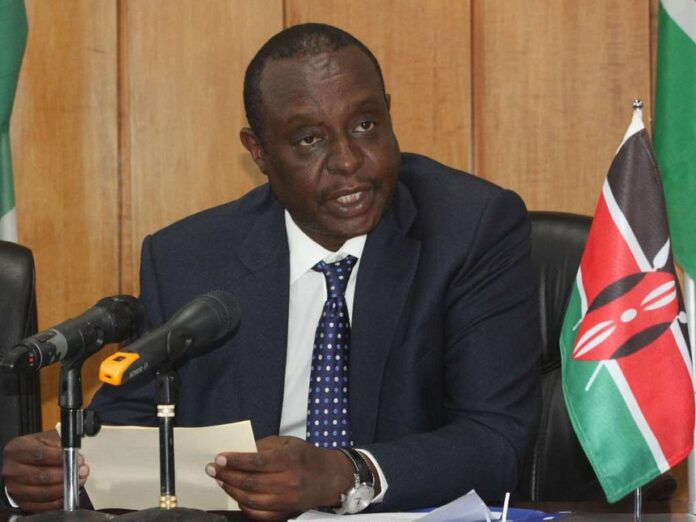This article by Jaindi Kisero first appeared in the Business Daily
We are truly in the middle of a debt trap. In an interview with Reuters this week, Treasury secretary Henry Rotich disclosed that Kenya has no choice than to issue a Eurobond to repay a $750 million (Sh77 billion) loan, which the government contracted from a syndicate of banks in October 2015. We are in a situation where the government has now resorted to borrowing from Peter to pay Paul.
I must say that I found some of the statements made by the minister in the interview revealing. First, he disclosed that even though the $750 million syndicated loan was due on October this year, the government had been forced to negotiate with bond holders to extend the maturity by six months to April 2018.
Secondly, Mr Rotich revealed that bond holders holding 10 per cent of the issue had flatly refused to extend maturity of the loan to April, forcing the government to fork out the money to pay them.
Clearly, our credibility in the eyes of international credit markets has been dented by this transaction. In international capital markets, your standing in the eyes of creditors is tarnished the moment you start negotiating debt rescheduling and begin pleading for extension of maturity.
As things stand, we are more or less treated in technical default. It is not a good place to be because, over the decades, Kenya has prided itself on ability to honour its obligations to commercial creditors.
But so what if Kenya was to be deemed to be in technical default? Whenever a sovereign’s credit rating is marked down, it affects borrowing costs for everybody and– therefore – increases the cost of doing business in the economy.
Whichever way you look at it, we are deep in a debt trap- constantly borrowing more money to service older loans. Indeed, it appears that we are approaching a point where all the loans we borrow from international markets will now go into repaying debts instead of being deployed into infrastructure spending.
While the minister can take solace in the fact that he has managed to convince bond holders to postpone repayment of the $750 million syndicated loan to April next year, it is just but a temporary relief.
In the coming months, things will not be easy for him because an IMF stand-by facility of $1.5 billion contracted in March 2016 will also be coming due for retirement the very same month he will going to the market to raise money to repay the syndicated loan.
A year later, in March 2019, two more syndicated loans amounting to a total of $1.05 billion will become due. They include $250 million from PTA Bank and $800 million from a syndicate of Citi, Standard Chartered and Standard Bank SA, both contracted in 2017.
A few months later, the ghost of the 2014 Eurobond will be coming back to hound the government since part of that controversial Eurobond- an amount of $750 million- matures in June 2019.
And the rate at which we have gobbled up Chinese loans, especially for the standard gauge railway (SGR) projects, is simply frightening.
We borrowed a whopping $ 3.8 billion for the section between Mombasa and Nairobi. Then we hurriedly signed off another $1.5 billion for extending the line to Naivasha.
We have signed a commercial contract with a Chinese railway contractor to allow us access to another $5 billion in Chinese loans for the extension of the railway from Naivasha to Malaba.
In total, we are borrowing a massive $10 billion from the Chinese to fund the railway from Mombasa to Malaba. That amount is nearly 15 per cent of our gross domestic product.
The servicing of the $3.8 billion Chinese loans borrowed to fund the Mombasa-Nairobi section of the SGR is expected to kick in this financial year. Do we have the right to saddle unborn generations with such huge loans?
Until 2006, only South Africa had issued a Eurobond in the whole of sub-Saharan Africa. Like us, Many African countries have since jumped onto the bandwagon.
I like the way Nobel laureate, Joe Stiglitz, posed the question in a recent article: ‘’Are short-sighted financial markets working with short-sighted governments to lay the groundwork for the world’s next debt crisis?” I rest my case.









